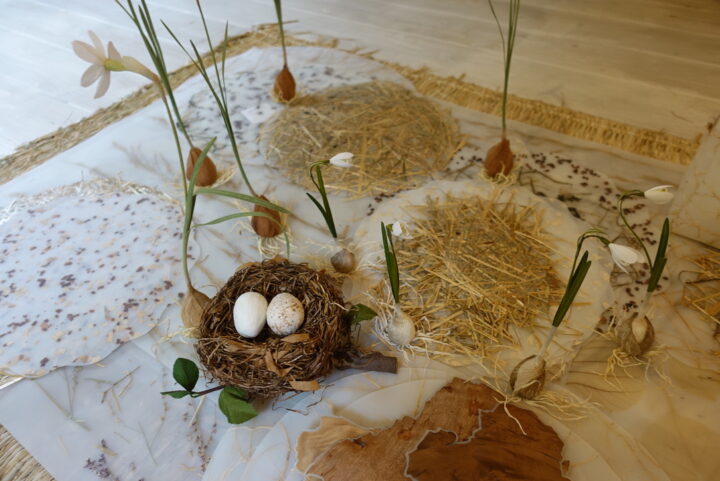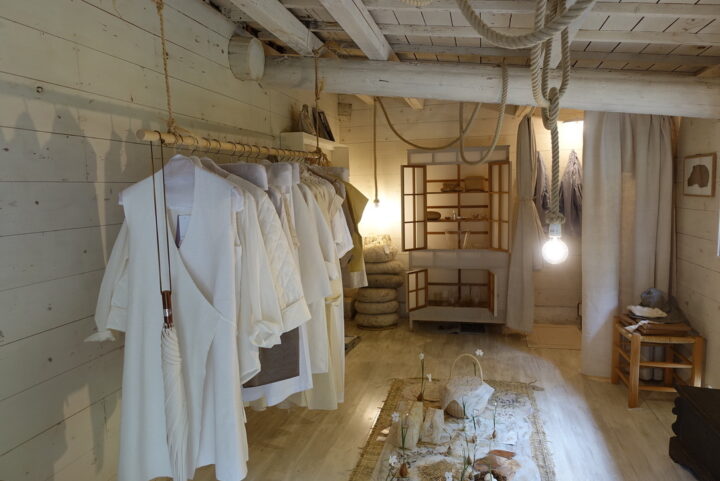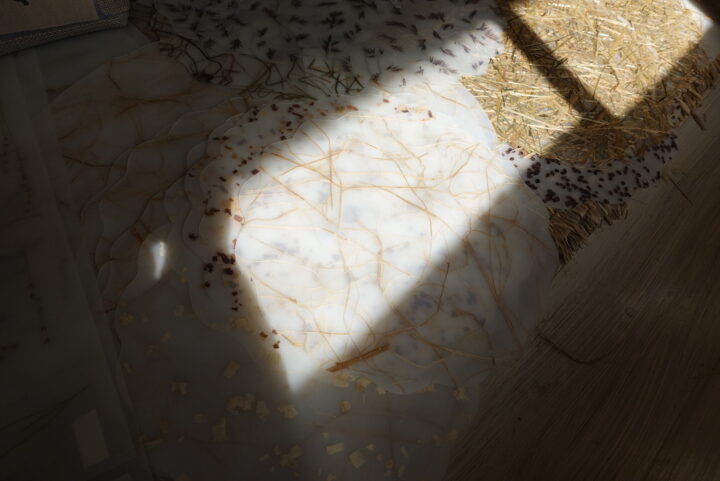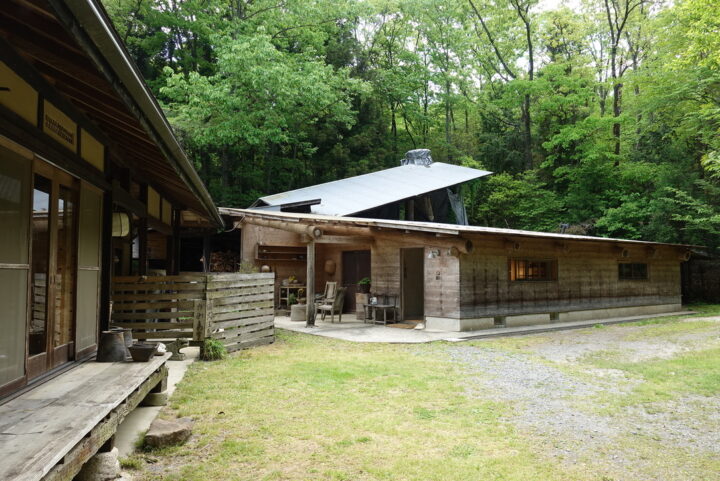I met Yuko Isogawa through an American designer I know. The designer worked with craftspeople around the world, and at the time, she was traveling frequently between the West Coast of the United States and Japan. On one of her trips, she chanced to stop by Isogawa’s shop in Nagasaki. She told me it felt like being struck by lightning. “The only thing in that shop is drawers!” she said several times, looking me in the eye.
Isogawa opened “the shop that only has drawers”—also known as Atelier Toa—in 2000 on the second floor of a small commercial building in the city of Nagasaki. Other than the orderly drawers that lined the walls from floor to ceiling, nothing in the place resembled merchandise. Customers arrived at the time of their appointment and were led to a table facing the drawers. Between the table and the drawers was a space lined with tatami mats, like they have in traditional kimono shops. Isogawa would position herself in this space and begin to chat aimlessly with her customer, as if they were sitting around a real dining-room table. Gradually, she would turn the conversation toward items the customer lacked or desired. Only then would she reach for a drawer. They were filled with clothing, household items, and even art pieces, each an actor waiting for their moment in the spotlight.
That distinctive shop closed in 2016. The closure was a daring decision by Isogawa, who is constantly alert and responsive to the shifting winds of society. She packed the contents of her drawers into boxes and took to the road, traversing the bonds between people and place and selling her goods at travelling exhibits.
Her movements remind me of the workings of the natural world, a joyful cycle of creating and receiving.
Much work takes place out of sight so that each living being can exist on Earth in its inherent form. For example, honeybees collect pollen, fertilizing flowers that become the fruit that gives us life. Flowers have many clever ways of ensuring their nectar goes only to honeybees. Some have evolved tubular shapes that match the bee’s ability to burrow into long, narrow spaces, with pollen concentrated at the bottom of these tubes. In their constant search for a suitable partner, bees are continuously embarking on dauntless journeys and flowers are continuously evolving to receive these travelers.
I have met with Isogawa several times in Europe, where she travels for work. Usually, she will have just bought something and will describe it to me still in a state of excitement, not quite able to translate the shapes, textures, and craftsmanship she has seen into words. I am always surprised that her purchases are based so much on seeing and touching materials or samples; words play very little role. For her, objects are a language in themselves.
She pursues objects as if she is checking the scent of the earth or the hardness of water. The craftspeople she chooses obtain their raw materials from nature, but the objects they create can only come into being through the work of human hands. Making these objects is a method of joining nature and people, or put differently, of mending the rift between the two. Isogawa scurries busily between makers, objects, and users, filling the gap between nature and humanity.
The objects she deals in casually betray the expectations and roles determined for them by other people living in other places. Functional objects become works of art when our perspective or handling of them changes. New objects can look ancient because of the months or years applied to their materials, and old objects can take on new functions to fill gaps in our lives. Through objects, we can come to interpret the world much more fluidly.
In early summer, when the hills are blazing with green, Isogawa will visit the town of Kyotamba with her treasured objects. The venue, Gallery Hakuden, is just the right place for them – a pottery studio and gallery close to the earth and water, so covered in greenery it’s hardly visible at times, where the work of people and nature mingles.
Yoshiko Nagai, Curator
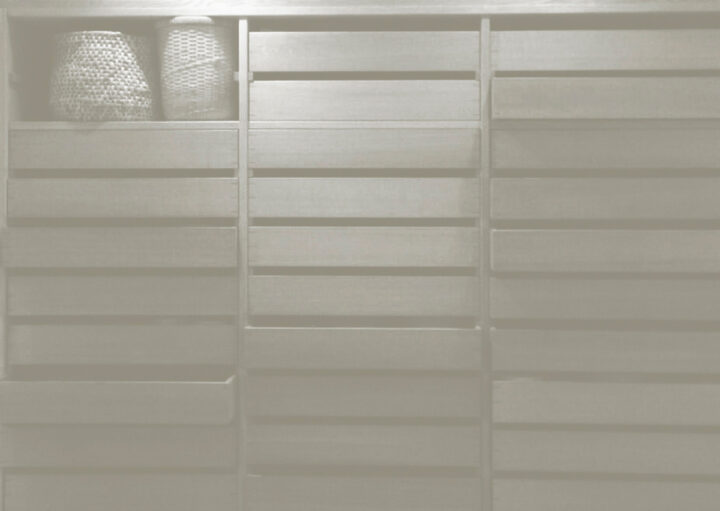
This text was written for the following exhibition.
ATELIER TOA
Date:May 7(Sat)ー10(Tue), 2022 11:00-18:00 Instagram: atelier_toa
Venue:gallery白田 (Gallery Hakuden)
Moriyamada 7, Kyotamba, Funai-gun, Kyoto-fu
TEL: 0771-82-1782
